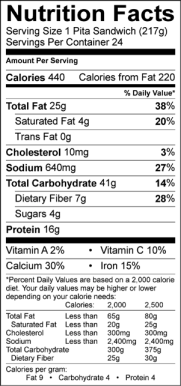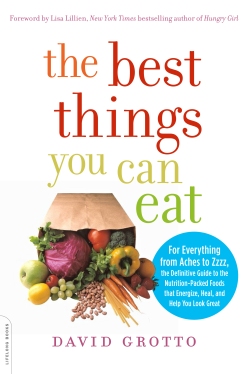
Kansas City Photographer
By David Grotto, MS, RDN, LDN
The 2015-2020 Dietary Guidelines for Americans encourages the consumption of a variety of protein sources including those that are plant-based such as legumes (beans and peas), nuts, seeds and soy products. However, reducing or eliminating meat and dairy sources from the diet, especially for the student athlete, can impact important nutrients such as protein, iron, calcium, and vitamins B12 and D, if not planned for accordingly.
Working with a sports registered dietitian not only helps increase understanding of how to choose and prepare plant-based proteins, but they can also identify the unique nutrient needs of the student athlete and develop an optimal dietary strategy to support training and competition demands. Included below, are some helpful tips from the NCAA Sports Science Institute and the Sports, Cardiovascular and the Wellness Nutrition practice group from the Academy of Nutrition and Dietetics.
| Nutrient | Plant Sources | Tips |
| Protein | Beans, peas, lentils, tofu, texturized vegetable/soy protein, quinoa, nuts, seitan, and seeds. | 1. Adding eggs and dairy to any plant based protein dishes makes it a complete protein source.
2. Choose soy foods such as edamame, tofu, soy milk, tempeh and veggie protein products for complete proteins.
|
| Iron | Beans, peas, lentils, nuts, seeds, whole and enriched grains,
dark-green leafy vegetables, dried fruit |
1. Look for “iron-enriched” or “fortified” cereals and bread products, as well as fermented soy foods (tofu, miso, tempeh).
2. Use cast-iron skillets for cooking. 3. Consume foods high in vitamin C (citrus fruits, strawberries, tomatoes, and kiwi) with iron-containing foods. 4. Avoid combining high-calcium foods, tea or coffee with iron-containing foods. 5. Iron supplementation may be indicated **.
|
| Calcium | Broccoli, cabbage, kale, collards, mustard and turnip greens,
almonds, calcium-fortified milk alternatives such as soy, rice or almond milks, juice. |
1. Choose dairy items such as milk, cheese or yogurt or calcium-fortified dairy alternatives.
2. Calcium supplementation may be indicated **. |
| Vitamin D | Vitamin D-fortified dairy alternatives, juice, mushrooms | 1. Choose fatty fish (salmon, sardines, mackerel), eggs, dairy or vitamin D-fortified dairy alternatives.
2. Vitamin D supplementation may be indicated**. |
| Vitamin B-12 | Nutritional yeast (not baker’s yeast)
Vitamin B12-fortified: soy milk, fortified cereals, meat alternatives |
1. Vitamin B12 is of greatest concern for vegans. A multivitamin or a B-12 supplement may be indicated**.
2. Add in dairy products, eggs, or vitamin B-12-fortified dairy alternatives |
| ALA (Omega-3 Fatty Acid) | Walnuts, flaxseed (see Ingredients on food label), canola oil.
|
1. Add in fatty fish such as salmon and tuna, Cook with canola oil.
2. An omega-3 supplement may be indicated**.
|
| Zinc | Beans, peas, lentils, nuts, sesame and pumpkin seeds, whole grains, soy, meat alternatives, fortified cereals | 1. Hard cheeses, shrimp and scallops are also a source of zinc.
2. Zinc supplementation may be indicated **. |
** Talk with your physician or a sports dietitian about your unique nutrient needs and if a dietary supplement is indicated.
Lastly, eating a variety of foods on a regular basis increases the likelihood of getting essential nutrients into your diet and decreases the risk of deficiency. Monitor your performance level. If you note changes in your energy and performance levels, meet with your athletic trainer or see a sports dietitian.
For more information, visit www.scandpg.org or www.ncaa.org
Enjoy this portable, delicious, easy to make, plant protein-forward recipe!
Gardenburger® Veggie Wrap
Servings: Two
INGREDIENTS:
2 Gardenburger® patties, cut into ¼- inch strips
2 ounces shredded Swiss cheese
1/2 cup zucchini, cut into ¼-inch strips
1/2 cup Portobello mushrooms, cut into ¼- inch strips
1 Tbsp canola oil
Chopped lettuce and chopped tomato garnish
1 whole wheat pita bread, cut in half
PREPARATION:
- Preheat oven to 350 degrees.
- Combine Gardenburger® patties, canola oil with zucchini and mushroom pieces into a mixing bowl. Mix well.
- Spray non-stick roasting pan with cooking spray. Pour Gardenburger® mixture into a roasting pan and cook for 10-15 minutes. Remove from oven. Sprinkle Swiss cheese over mixture and stir in well.
- Place in pita pockets and garnish with lettuce and tomato. Serve.

Sources:
- NCAA: Vegetarian Eating for the Student Athlete. https://www.ncaa.org/sites/default/files/Vegetarian%20Eating%20for%20the%20Student-Athlete.pdf
- Thomas DT, Erdman KA, Burke LM. Position of the Academy of Nutrition and Dietetics, Dietitians of Canada, and the American College of Sports Medicine: Nutrition and Athletic Performance. J Acad Nutr Diet. 2016 Mar;116(3):501-28.



